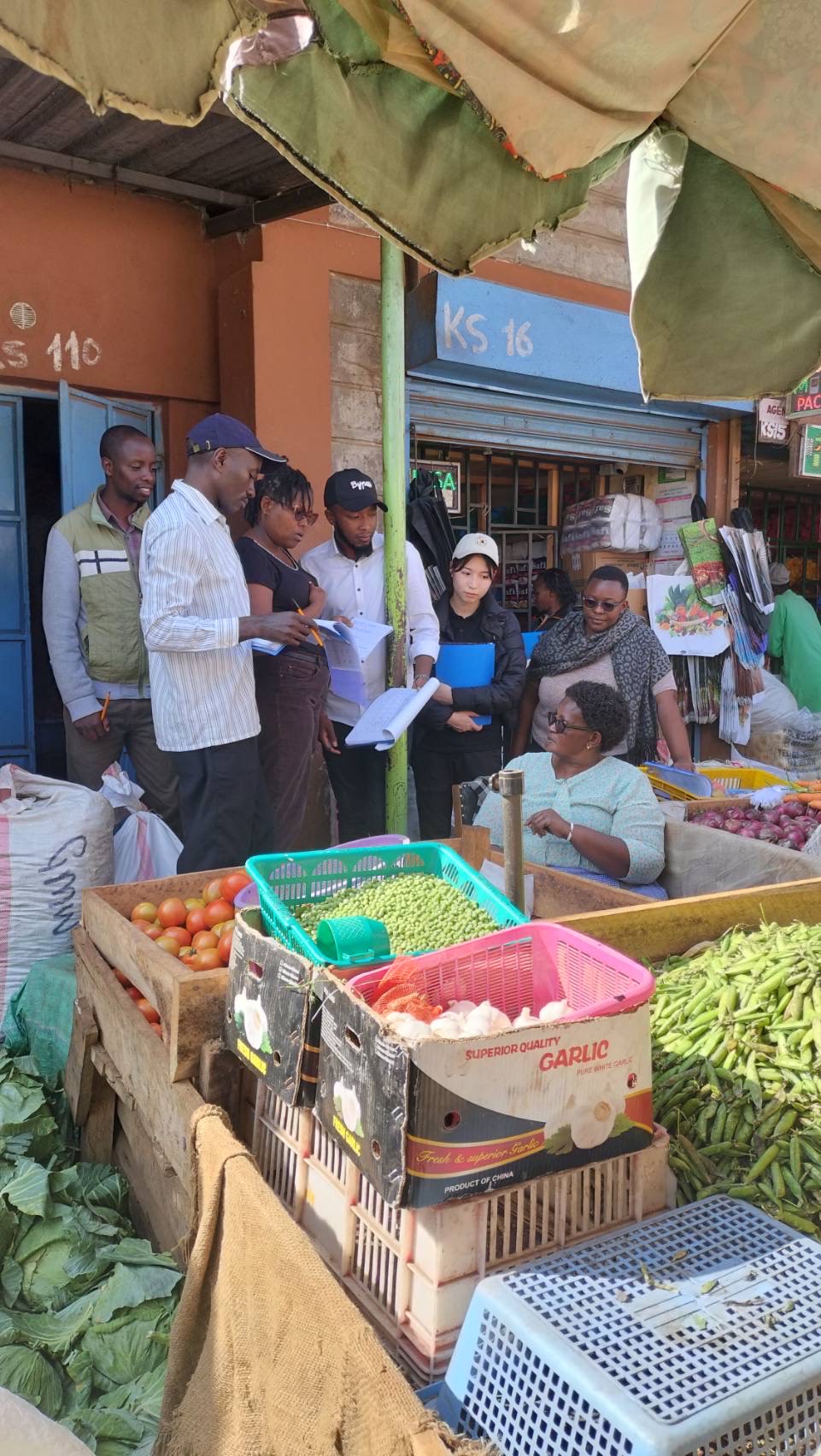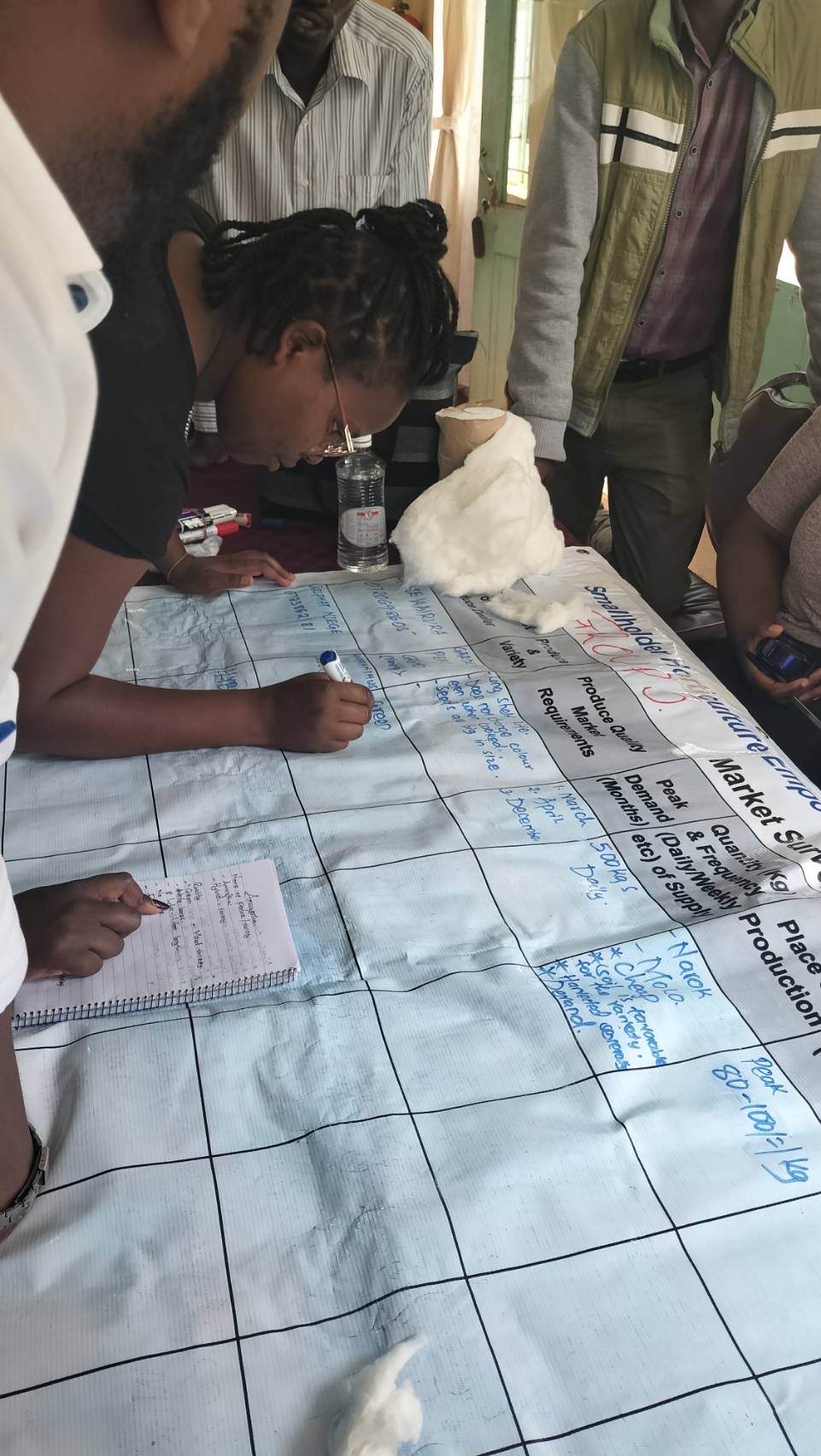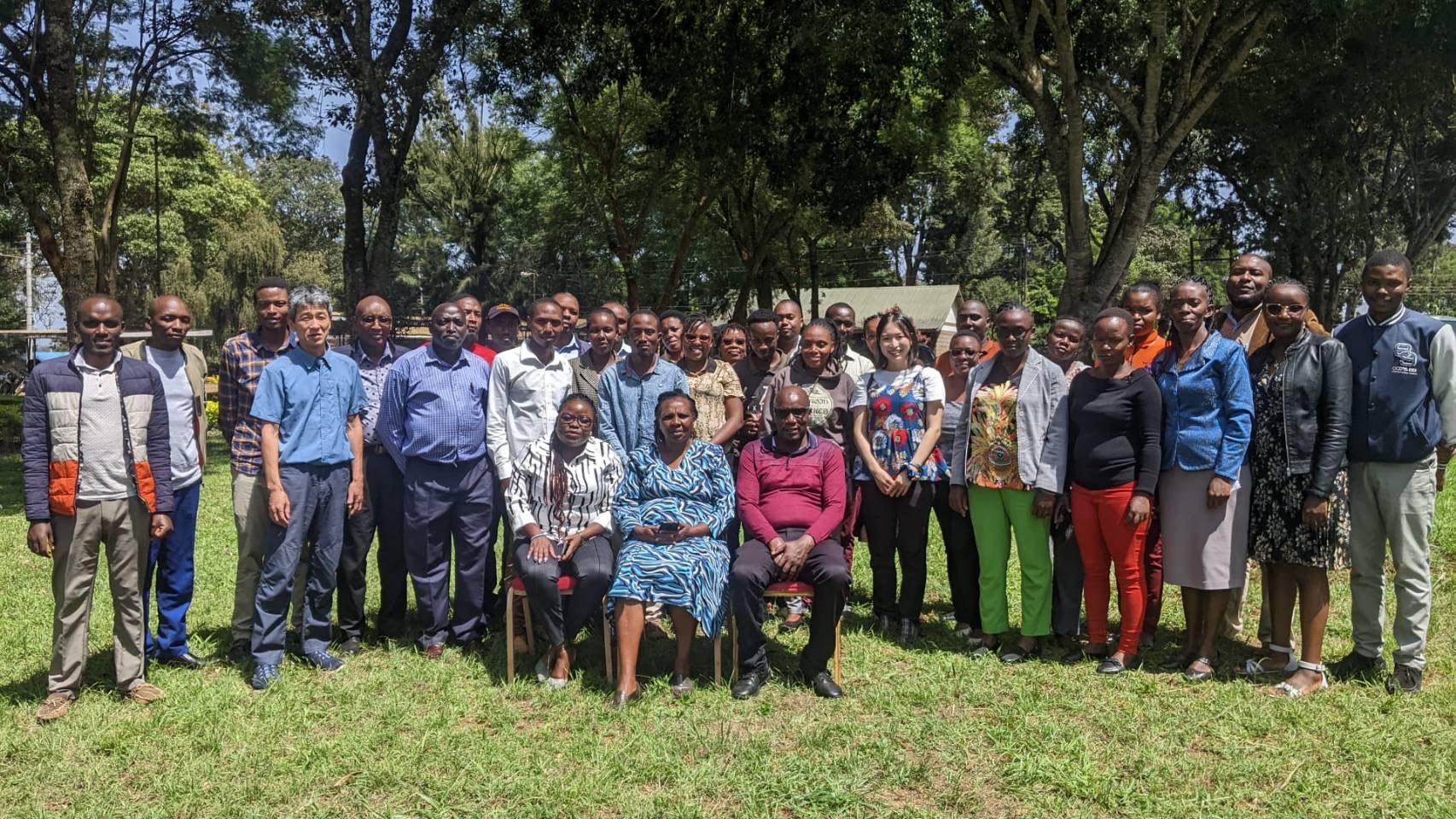Project News Volume 40
Habari Yako? Hello, my name is Karin Miura, and I am a JICA Overseas Cooperation Volunteer. ("Habari Yako" is a Swahili greeting meaning how are you?.)
Currently, I am working in Kericho, Kenya, as a Community Development Volunteer, focusing on improving farmers' incomes and expanding their market access.
I had the opportunity to participate in a training program by the SHEP Biz project, which aims to enhance the incomes of small-scale farmers. The training was held in Nyeri and gathered around 30 participants, including agricultural officers and extension workers from the region. After attending lectures on the SHEP approach, we visited local market and conduct market survey, crop selection, and crop planting calendar making in groups. This intensive four-day training provided me with many valuable insights.
Key Takeaways from the Training
Through this training, two key points left a strong impression on me.
1. Meeting Young Agricultural Extension Workers
Many of the participants in this training were young agricultural extension workers, commonly referred to as Gen Z (meaning “generation Z”) in Kenya. They were highly motivated and actively engaged in both lectures and training exercises. I was inspired by their energy and passion, as they are the future of Kenya's agricultural sector.
2. The Importance of Market Survey
On the second day of the training, we conducted hands-on market survey. The discussions between market traders and extension workers were incredibly insightful. We investigated not only prices and crop varieties but also the specific shapes, sizes, and timing that consumers demand. Such information is crucial and can only be obtained through direct communication between market traders, who are closest to consumers, and farmers, who are growing a variety of crops . This experience reinforced my belief that market survey is essential for farmers to succeed in selling their products.
Way Forward
Through this SHEP training, I gained valuable insights and reaffirmed the effectiveness of the SHEP approach in various contexts. Moving forward, I aim to introduce this approach to agricultural extension workers and farmers in my assigned area and apply it to my activities.
Additionally, I hope to collaborate with the avocado farmers I previously worked with to produce avocado soap, as well as the small-scale farmers selling sorghum tea. By utilizing the SHEP approach, I want to help them develop more effective sales strategies and improve their market success.

Participants conducted market survey

Participants filled in the results of market survey

Group photo after the SHEP training
